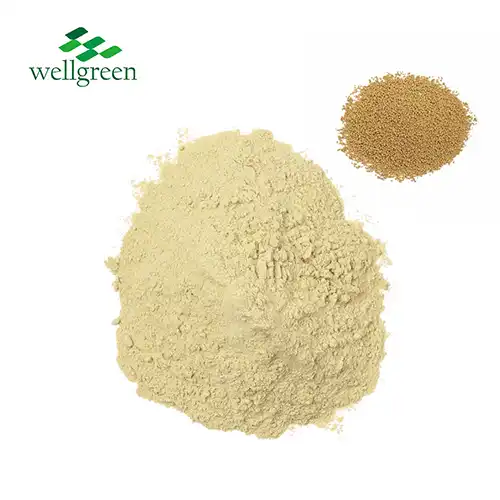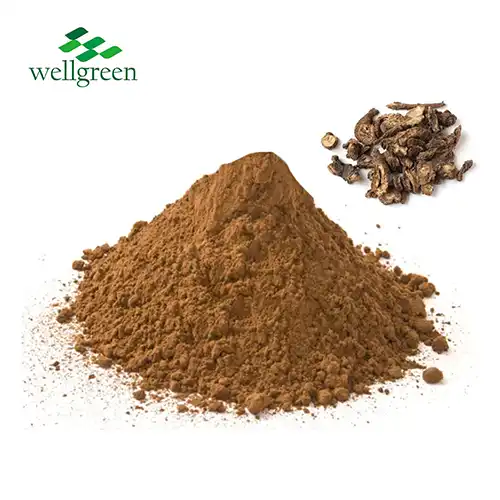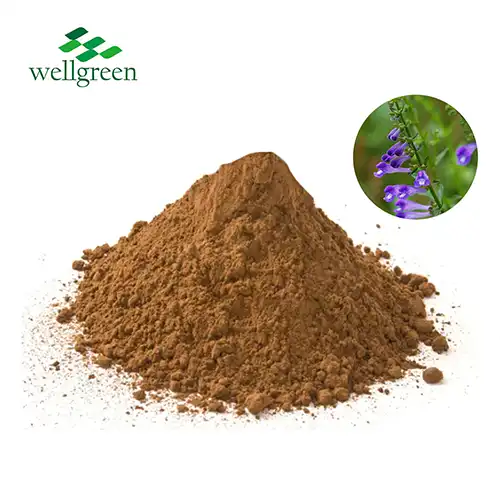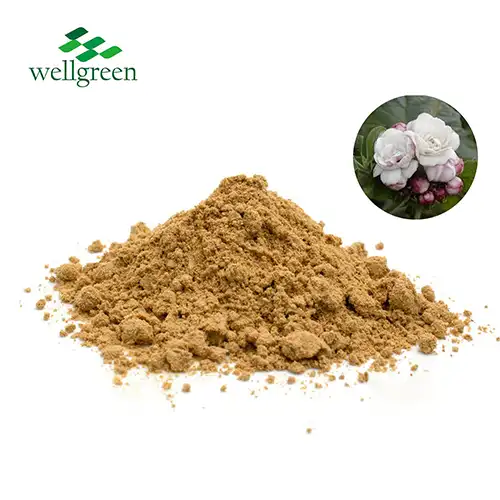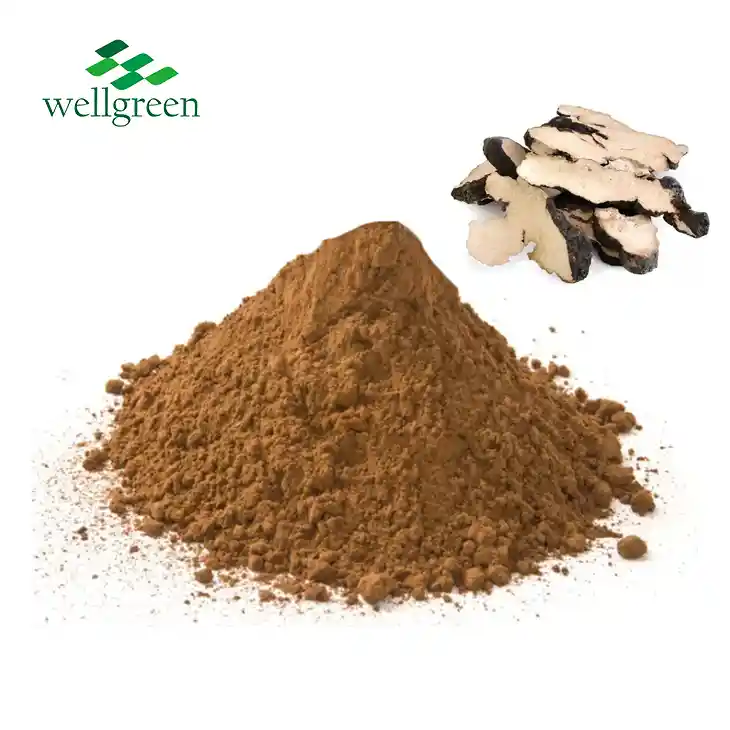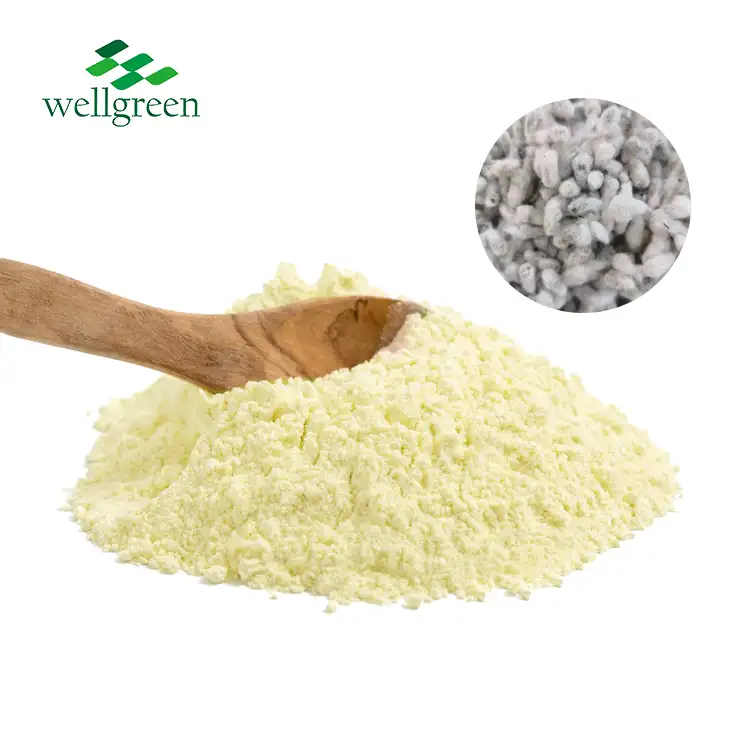Unlocking the Antioxidant Power of Echinacea Purpurea Extract Powder
2025-08-14 13:34:07
Echinacea purpurea extract powder has gained significant attention in the world of herbal medicine and natural supplements due to its potent antioxidant properties. This powerful extract, derived from the purple coneflower, offers a wealth of health benefits beyond its well-known immune-boosting effects. By harnessing the antioxidant potential of echinacea purpurea, individuals can combat oxidative stress, protect cells from damage, and potentially reduce the risk of various chronic diseases. In this comprehensive guide, we'll delve into the science behind echinacea's antioxidant prowess, explore its active compounds, and compare its efficacy to other botanical antioxidants in the realm of herbal medicine.

Which Active Compounds are Responsible for Antioxidant Effects?
Echinacea purpurea extract powder contains a complex array of bioactive compounds that contribute to its antioxidant properties. Understanding these key components helps shed light on the mechanisms behind echinacea's powerful effects.
Polyphenols and Flavonoids
Polyphenols and flavonoids are among the most abundant antioxidants found in echinacea purpurea extract. These compounds, including caffeic acid derivatives and quercetin, possess strong free radical scavenging abilities. They neutralize harmful molecules that can damage cells and contribute to oxidative stress. The synergistic action of these polyphenols enhances the overall antioxidant capacity of echinacea extract powder.
Alkamides
Alkamides are unique compounds found in echinacea extract powder that contribute significantly to their antioxidant effects. These lipophilic molecules can easily penetrate cell membranes, allowing them to exert their protective effects within cells. Alkamides have demonstrated the ability to activate antioxidant response elements in cells, stimulating the production of endogenous antioxidant enzymes and further bolstering the body's defense against oxidative damage.
Polysaccharides
While primarily known for their immunomodulatory properties, the polysaccharides in echinacea purpurea extract also exhibit antioxidant effects. These complex carbohydrates can chelate metal ions, preventing them from participating in oxidative reactions. Additionally, polysaccharides may enhance the activity of other antioxidant compounds, creating a more robust protective effect against free radicals.
Neutralizing Free Radicals and Reducing Oxidative Damage
The antioxidant compounds in echinacea purpurea extract powder work synergistically to combat oxidative stress and protect cells from damage. Understanding the mechanisms by which these compounds neutralize free radicals and reduce oxidative damage is crucial for appreciating the full potential of echinacea as an antioxidant powerhouse.
Free Radical Scavenging
One of the primary ways echinacea extract powder exerts its antioxidant effects is through direct free radical scavenging. The polyphenols, flavonoids, and other antioxidant compounds in echinacea can donate electrons to unstable free radicals, neutralizing them before they can cause damage to cellular components. This process helps maintain the integrity of cell membranes, proteins, and DNA, potentially reducing the risk of chronic diseases associated with oxidative stress.
Enhancing Endogenous Antioxidant Systems
Beyond direct free radical neutralization, bulk echinacea purpurea extract has been shown to enhance the body's own antioxidant defense mechanisms. The active compounds in echinacea can stimulate the production of endogenous antioxidant enzymes such as superoxide dismutase, catalase, and glutathione peroxidase. By bolstering these natural defense systems, echinacea extract helps create a more robust and sustained protection against oxidative damage.
Cellular Protection and DNA Preservation
The antioxidant effects of echinacea purpurea extract powder extend to cellular protection and DNA preservation. By neutralizing free radicals and reducing oxidative stress, echinacea helps maintain the integrity of cell membranes and prevents lipid peroxidation. Additionally, the antioxidant compounds in echinacea can protect DNA from oxidative damage, potentially reducing the risk of mutations and supporting overall cellular health.

Comparison with Other Botanical Antioxidants in Herbal Medicine
While echinacea purpurea extract powder boasts impressive antioxidant properties, it's essential to consider how it compares to other well-known botanical antioxidants in the realm of herbal medicine. This comparison provides valuable context for understanding the unique benefits of echinacea and its potential applications in antioxidant supplementation.
Echinacea vs. Green Tea Extract
Green tea extract is renowned for its high content of catechins, particularly epigallocatechin gallate (EGCG), which exhibit potent antioxidant effects. While green tea may have a higher overall antioxidant capacity, echinacea purpurea extract offers a more diverse range of antioxidant compounds, including unique alkamides. This diversity may provide a broader spectrum of protection against different types of oxidative stress. Additionally, echinacea's immunomodulatory properties complement its antioxidant effects, offering a multifaceted approach to health support.
Echinacea vs. Turmeric (Curcumin)
Turmeric, particularly its active compound curcumin, is widely recognized for its powerful antioxidant and anti-inflammatory properties. While curcumin may demonstrate stronger effects in certain anti-inflammatory pathways, echinacea purpurea extract powder shines in its ability to enhance endogenous antioxidant systems. The combination of direct free radical scavenging and stimulation of the body's antioxidant defenses makes echinacea a valuable complement to turmeric in comprehensive antioxidant support.
Echinacea vs. Ginkgo Biloba
Ginkgo biloba is often touted for its antioxidant effects, particularly in relation to cognitive health and circulation. While ginkgo may have specific benefits for brain function, echinacea purpurea extract offers a broader range of antioxidant compounds that can support overall cellular health. The unique alkamides in echinacea, which can easily penetrate cell membranes, may provide more comprehensive cellular protection compared to ginkgo's flavonoid glycosides.
Conclusion
Echinacea purpurea extract powder stands out as a potent and versatile antioxidant in the world of herbal medicine. Its diverse array of bioactive compounds, including polyphenols, alkamides, and polysaccharides, work synergistically to neutralize free radicals, enhance endogenous antioxidant systems, and protect cells from oxidative damage. While other botanical antioxidants offer their own unique benefits, echinacea's multifaceted approach to oxidative stress management makes it a valuable addition to any antioxidant supplementation regimen. By harnessing the antioxidant power of echinacea purpurea extract, individuals can support their overall health and potentially reduce the risk of chronic diseases associated with oxidative stress.
Contact Us
Ready to experience the antioxidant benefits of premium echinacea purpurea extract powder? Contact Xi'an Wellgreen today at wgt@allwellcn.com to learn more about our high-quality bulk echinacea purpurea extract and how it can enhance your product formulations.
References
1. Barrett, B. (2003). Medicinal properties of Echinacea: A critical review. Phytomedicine, 10(1), 66-86.
2. Thygesen, L., Thulin, J., Mortensen, A., Skibsted, L. H., & Molgaard, P. (2007). Antioxidant activity of cichoric acid and alkamides from Echinacea purpurea, alone and in combination. Food Chemistry, 101(1), 74-81.
3. Dogan, Z., Ergul, B., Sarikaya, M., Filik, L., Gonultas, M. A., Hucumenoglu, S., & Can, M. (2014). The antioxidant effect of Echinacea angustifolia and Echinacea purpurea in rat colitis model induced by acetic acid. Bratislavske lekarske listy, 115(7), 411-415.
4. Mishima, S., Saito, K., Maruyama, H., Inoue, M., Yamashita, T., Ishida, T., & Gu, Y. (2004). Antioxidant and immuno-enhancing effects of Echinacea purpurea. Biological and Pharmaceutical Bulletin, 27(7), 1004-1009.
5. Tsai, Y. L., Chiu, C. C., Chen, J. Y., Chan, K. C., & Lin, S. D. (2012). Cytotoxic effects of Echinacea purpurea flower extracts and cichoric acid on human colon cancer cells through induction of apoptosis. Journal of Ethnopharmacology, 143(3), 914-919.
6. Sharif, M. F., & Bennett, M. T. (2016). The effect of different methods of extraction on the antioxidant activity of Echinacea purpurea. Journal of Applied Pharmaceutical Science, 6(2), 055-061.

